Chess is not just a game. It’s like a gym for the brain. Every move in chess teaches something big—how to think ahead, how to be patient, and how to make smart choices. And in a lovely place like Shawlands, Glasgow, many kids and parents are starting to see how powerful chess can be in a child’s life.
Online Chess Training
Landscape of Chess Training in Shawlands and Why Online Chess Training is the Right Choice
Shawlands is a beautiful area in Glasgow. It has parks, cafes, schools, and families who care deeply about their children’s growth. Over the years, more parents here have started to see the value of chess. It’s no longer just a board game. It’s a tool for thinking, for focus, and for learning how to deal with challenges.
Now, if you walk around Shawlands, you’ll find a few local chess clubs. Some schools offer chess as an after-school activity. And that’s a great start. But it’s often just casual play. No lessons, no feedback, no direction.
That’s where many parents get stuck. They want their child to get better at chess, to actually learn something—not just play random games. But local options are limited.
This is why online chess training is a game changer.
Online training brings the best teachers in the world straight into your home. Your child can learn from real coaches who know how to teach. Not just grandmasters who play well, but actual teachers who know how to explain things in a simple way that kids understand.
Plus, online learning gives your child a structured plan. Each lesson builds on the last. There are goals. There’s progress. There’s feedback. And you can see how much your child is improving week after week.
No more rushing to classes after school. No more sitting in traffic. With just a laptop or tablet, your child can sit comfortably at home and get the same—or often better—training than what’s available in most offline classes.
Also, chess online is not lonely. Students meet other kids from around the world. They play together, learn together, and even join friendly tournaments every week. It’s a whole community of bright young minds, sharing the joy of learning and growing.
So, if you live in Shawlands and want the best chess training for your child, online is not just a good choice—it’s the right choice.
How Global School of Chess is the Best Choice When It Comes to Chess Training in Shawlands
Let’s talk about the heart of this article: Global School of Chess.
This is not your typical chess school. It’s a special place where kids from all over the world come to learn chess—not in a dry or boring way, but in a way that sparks joy, builds focus, and sharpens the mind.
What makes it stand out?
First, the teachers. Every coach here is FIDE-certified. That means they’re not just good at chess—they’re trained to teach chess. They know how to connect with kids. They break down hard ideas into easy steps. They make learning feel like a game, not a chore.
Second, the structure. Global School of Chess has a clear, step-by-step plan. It’s like climbing a ladder. Your child starts from the basics and keeps moving up. Each level has its own lessons, challenges, and small wins. You’ll never feel lost. You’ll always know what your child is learning and how far they’ve come.
Third, it’s personalized. Not every child learns the same way. Some learn fast, some take a little more time. That’s okay. The academy doesn’t just throw your child into a group and hope they catch up. They build the class around your child. The pace, the topics, even the practice games—all matched to your child’s level and style.
And finally, there’s community. Kids join online tournaments every two weeks. They play friendly matches, win medals, and feel proud. They get to meet kids from nine different countries! Imagine how exciting that is for a young learner. They’re not just learning chess. They’re building confidence, making friends, and having fun.
So if you’re in Shawlands and looking for real growth, Global School of Chess is the best place to start.
Offline Chess Training
Before we had fast internet and video calls, offline chess classes were the only way to learn. Kids would sit in a hall or library with a coach. The coach would put a position on a big board and explain what’s happening. Then, the students would play games against each other.
That sounds nice—and it can be. It’s good to be around other kids and play in person. But when we look closer, there are some things that don’t work so well in most offline chess training programs.
For starters, offline classes are often very basic. Coaches try to teach many students at once. That means each child gets very little personal attention. The smart ones get bored. The slow ones feel lost. And the teacher can’t keep up with every student’s needs.
Also, most offline classes don’t follow a set plan. One day the class learns openings. The next week they jump into endgames. There’s no step-by-step journey. So kids learn things randomly. They may know how to play a checkmate trick but not understand why it works. That’s not real learning. That’s just guessing.
And let’s talk about travel. If your child is tired from school, do you really want to spend your evening driving across town for a class? Then wait around for an hour and drive back home? It’s tiring. It’s hard to stick with.
Sometimes the coaches themselves aren’t trained teachers. They may know how to win games, but they can’t always explain it in a way a 7-year-old can understand. Kids get confused, and their confidence drops. Some even quit.
In short, offline chess classes are okay if you’re just looking for fun. But if you want real progress, where your child grows in skill and confidence, we need something better.
And now, we’ll look at that “something better.”
Drawbacks of Offline Chess Training
Let’s break it down clearly.
No structure: Offline classes often don’t follow a proper path. Kids jump from topic to topic, and it gets confusing.
Lack of personal attention: One coach for 10–20 students? That’s not teaching. That’s babysitting. Every child deserves attention. But offline classes don’t allow that.
No regular progress checks: In many offline programs, there are no proper tests or checkpoints. So how do you know if your child is improving?
Time and travel stress: Imagine your child had a long school day. Now they have to dress up, pack up, drive 20 minutes, sit in a noisy room, and try to learn. That’s hard. It leads to burnout.
Missed lessons: If your child is sick or you’re on holiday, they miss a class. And in most offline setups, there are no recordings or replays. So they just fall behind.
No access to global talent: Offline classes are limited by location. Your child can only learn from coaches nearby. But the best teachers might be miles—or countries—away.
When you see all this, it becomes clear. Offline training worked once. But not anymore.
There’s a better way now.
And that brings us to the main part of this guide…
Best Chess Academies in Shawlands
There are a few places in and around Shawlands where kids can learn chess. But when it comes to real learning, deep understanding, and growing both in chess and in life, not all academies are the same.
Here’s a detailed look at the top 5 chess academies. And we’ll start with the one that’s leading the way, not just in Shawlands—but all over the world.
Global School of Chess
When we say this is the best, we really mean it. Global School of Chess is not just another online chess class. It’s a full experience. It’s smart, warm, fun, and made to bring out the best in your child.
Let’s break it down.
World-Class Teachers
Every coach at Global School of Chess is FIDE-certified. That means they are trained by the official world chess body. But more than that, they are natural teachers. They know how to speak to kids. They know how to take a tricky idea and make it simple. They are patient, kind, and always encouraging. Kids don’t just learn chess—they enjoy learning chess.
Personal Attention
Each student is treated like a VIP. Classes are small, and coaches pay close attention to what your child is learning, where they’re struggling, and how to help them move forward. This is not one-size-fits-all. It’s chess learning made for your child.
Structured Curriculum
This is big. Most chess classes are just random lessons or free play. But here, your child follows a clear, structured curriculum. It starts from the very basics and goes all the way to advanced strategy. Every class builds on the one before. Your child won’t just play chess—they’ll understand chess.
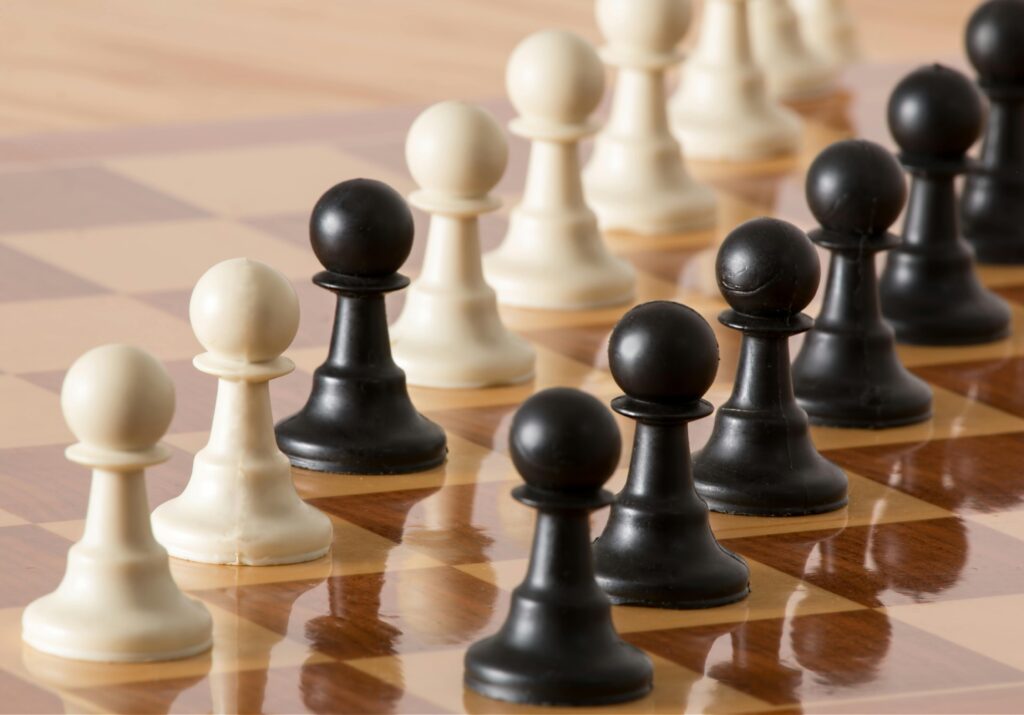
Live Interactive Classes
These classes are not just about watching a screen. They’re live. They’re interactive. Kids ask questions. They solve puzzles. They talk to the coach. It’s like being in a real classroom—but better, because everything is focused on making your child a better thinker.
Private Coaching
Some kids need extra help. Or maybe they want to go faster. Global School of Chess offers private coaching with expert teachers. These one-on-one classes are like gold. They bring out your child’s full potential.
Bi-Weekly Online Tournaments
Every two weeks, kids get to play in friendly tournaments. They test their skills, earn points, win medals, and feel proud. It’s fun, exciting, and builds confidence.
Focus on Life Skills
This is more than chess. At Global School of Chess, children learn focus, patience, planning, and calm thinking. These are life skills. And they stay with your child forever.
A Global Community
Students come from over nine countries. That means your child makes friends from different places, different cultures, all united by one thing—chess. It’s a beautiful way to connect, grow, and belong.
Easy to Join
You can start with a free trial class. No pressure. Just sign up and see how it feels. Most kids fall in love with it right away.
Ready to try it out? Here’s where you can book a class: Take a Free Trial Class
There is truly nothing else like it in Shawlands—or anywhere else.
Glasgow Life Chess Club
This club is known locally. It organizes chess meetups in the city. Most sessions are casual, and they’re great for kids who just want to play for fun. There are no real structured lessons or long-term coaching plans.
They do offer some group events and tournaments, but if you’re looking for personal coaching, detailed feedback, and serious improvement, this might not be the best choice. Still, it’s a nice place to meet others and enjoy casual games.
Compared to Global School of Chess, the training here is more relaxed and social—not built around growth and structure.
Glasgow Chess Centre
Glasgow Chess Centre has been around for a while. It’s a cozy place where chess enthusiasts gather. They have weekly classes and casual play sessions.
Their coaches know chess well—they’re often top club players. Kids can learn some interesting tactics and play more games. It’s a good place for friendly and relaxed learning.
But here’s the catch: the lessons are not deeply structured. They might show a few tactics one week, then play games the next, without a clear path from easy to hard. If your child is ready for big improvement, they might outgrow this setup quickly.
Compared to Global School of Chess, Glasgow Chess Centre is more casual. It’s okay for fun games—but it won’t give your child a step-by-step plan or personalized coaching.
Local School Clubs
In some Shawlands schools, clubs meet once or twice a week. They’re free or cost just a few pounds. It’s a nice way to feel the chess community with classmates.
Usually, a teacher or volunteer runs it. The kids learn the basics—how the pieces move, some checkmates, maybe a simple opening. They play against each other too.
These clubs are sweet and easy. But there’s no expert coaching. And once again, there’s no lesson path to push your child further and further. Without strong guidance, learning can stall after a while.
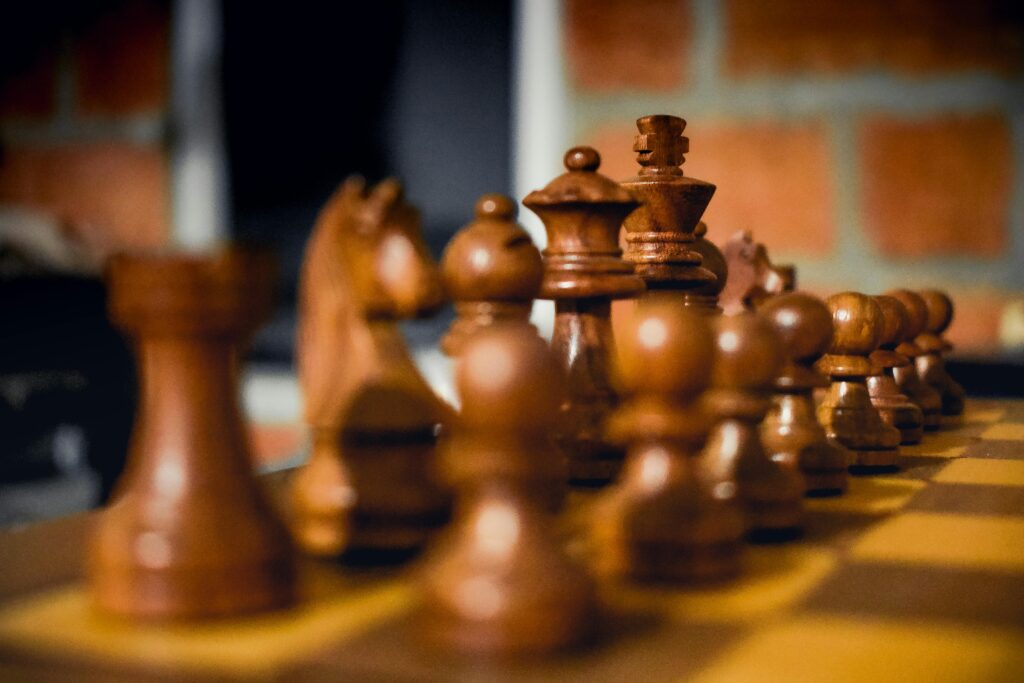
In contrast, Global School of Chess gives expert guidance, live classes, and a structured curriculum. That’s a much stronger way to grow.
Local Private Tutors
Some parents hire private tutors to teach chess from home. This seems personal, right? It is… to a point. Some tutors are good players and friendly. They can help with basic strategies and play through games together.
But too often, they don’t use a plan. They may not track progress or know how to teach bigger ideas clearly. Plus, costs can add up fast.
You might pay more for less. With private tutors, it’s hard to find the right coach and even harder to keep them motivated or accountable.
Global School of Chess solves that. You get top-level coaches, small group or private options, a clear plan, regular progress tracking, and tournaments—all in one reliable package.
Why Online Chess Training is The Future
Online chess training is no longer just an alternative. It’s becoming the gold standard—and for good reason. But beyond convenience, flexibility, and access, there’s a deeper, more strategic shift happening. The world is learning to learn differently. Let’s explore why this matters so much, and how chess schools, educators, and training platforms can ride this wave the right way.
Data-Driven Learning is a Game Changer
In traditional offline classes, it’s hard to track how a child is truly performing. Sure, a coach might remember if they won or lost last week’s game—but there’s no long-term data trail.
Online training fixes this.
Every move, every quiz, every mistake and success can be tracked and turned into meaningful insights. Smart platforms use this data to adjust the student’s path. That means a student never stays stuck or bored. For schools and training centers, this is gold. It lets you show clear proof of progress to parents, which builds trust and loyalty.
Action Tip for Training Businesses:
Invest in platforms that offer built-in analytics. Use those reports during parent-teacher meetings. When you can say, “Your child improved their endgame skills by 30% in 3 months,” you’re not just teaching—you’re building long-term trust.
Scalable Growth Without More Physical Space
Want to grow your offline chess academy? You need to rent more rooms, hire more staff, manage more logistics. Growth becomes expensive and messy.
Online training scales like magic.
You can go from 10 students to 1,000 students without changing your room size. With recorded sessions, hybrid formats, and rotating coaches, your reach multiplies without adding costs.

Action Tip for Chess Coaches or Clubs:
Package your lessons into beginner, intermediate, and advanced tracks. Use a mix of live sessions and recorded videos. It helps you serve more students without burnout.
Curriculum is King (and Online Makes it Easy)
Offline, coaches often make up lessons on the spot. That might work short term, but it doesn’t build long-term results.
Online academies like Global School of Chess design a full chess curriculum—like a school textbook but smarter. Lessons follow a path. Concepts are layered. Skills are revisited in new ways. It’s systematic and proven.
Action Tip for Training Institutes:
Start building your own chess curriculum—module by module. Start small: openings, tactics, endgames. Use video, puzzles, and real examples. This becomes your school’s backbone and sets you apart from casual hobby coaches.
Higher Parent Involvement Equals Better Results
Online classes are visible. Parents can see the teacher, the lesson, and the effort. That’s rare in offline setups, where parents drop the child off and hope for the best.
This visibility builds trust and accountability. And when parents are more involved, kids perform better.
Action Tip for Online Schools:
Send weekly update emails. Share a “What We Learned” video or a parent Q&A session. These small touches create big emotional value.
Online Chess is Future-Proof
The future is unpredictable. Snow days, pandemics, travel plans, or just a busy week—offline classes pause. But online chess training keeps going.
That kind of consistency is a blessing for kids. They don’t lose momentum, and they build discipline.
Action Tip for Educators:
Offer “flex lessons.” If a student misses a class, give them access to a recorded lesson and a short assignment. It keeps them in rhythm.
Community Without Borders
One of the hidden joys of online learning is global friendship. Your child could be learning Sicilian Defense from a coach in India, solving puzzles with a buddy in Canada, and playing a game with someone in Kenya.
This builds perspective, cultural appreciation, and global thinking—all through a game of chess.
Action Tip for Schools:
Host global theme days or mini “world cup” style tournaments. Let kids learn about each other’s countries, accents, and ideas. These are memories they’ll never forget.
How Global School of Chess leads the Online Chess Training Landscape
When it comes to teaching chess online, Global School of Chess doesn’t just participate—it leads. It sets the pace, the tone, and the benchmark for what online chess learning should be. But what makes this academy so ahead of the curve? And how can other training platforms or chess educators learn from its approach?
Let’s go beyond the basics and dive into the strategies that make it truly elite.
A Mission-First Approach
Global School of Chess doesn’t just teach chess to make kids win games. It exists to help children become better thinkers, better planners, and more confident decision-makers. This purpose drives every lesson, every interaction, every curriculum design.
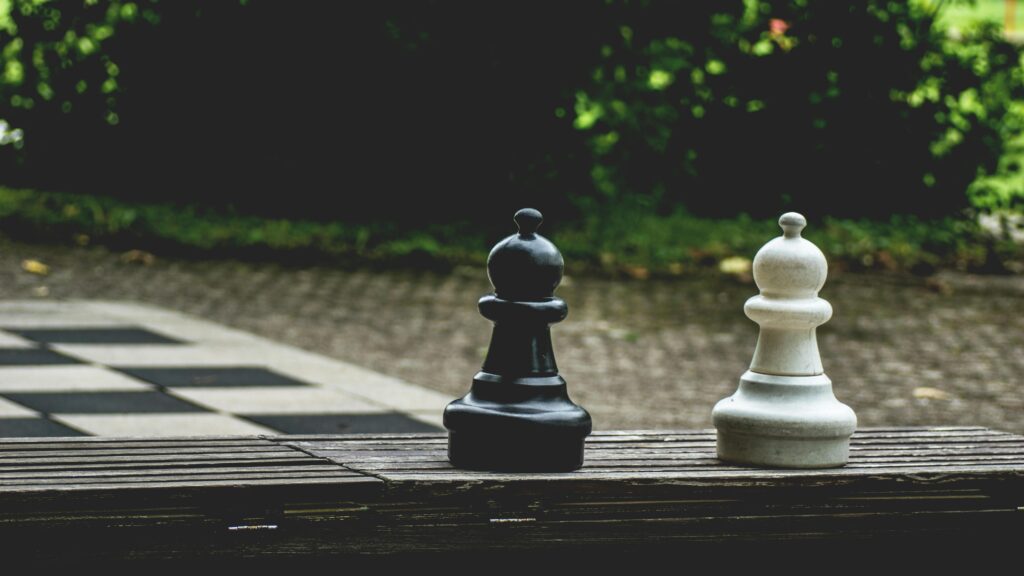
This clarity of purpose makes the learning experience richer—and parents feel it.
Action Tip for Other Schools:
Define your core mission clearly. Is it to help kids win tournaments? Or to boost thinking skills? Make that vision part of your daily work, website, and communication. Parents trust schools that stand for something real.
“Teach the Teacher” System
Unlike many chess platforms that hire top players and hope they can teach, Global School of Chess trains teachers to teach. Every coach goes through onboarding that covers how to work with young learners, explain ideas visually, and give feedback in a warm, encouraging way.
This transforms every coach from a player into a mentor.
Action Tip for Training Businesses:
Create a “Chess Coach Handbook” or internal video training library. Even top players need support to teach young kids well. Build systems, not just teams.
The Chess “Learning Loop” Method
What makes lessons stick? Repetition? Practice? Sure. But more important is the loop—a smart sequence of learning, doing, reviewing, and celebrating.
Global School of Chess uses this powerful cycle:
- Teach a new concept in a live class.
- Assign a real game or puzzle to practice it.
- Review that move or mistake with feedback.
- Celebrate success with points, medals, or shout-outs.
This simple but powerful loop makes learning feel alive, not robotic.
Action Tip for Academies:
Design your classes like loops, not lines. Make space for review and feedback. Set up small achievements after each stage. It builds motivation and memory.
Emotional Safety = Academic Growth
Chess can be tough. You lose a lot before you win. And many kids quit when they feel embarrassed or lost.
That’s why Global School of Chess creates a space where no question is silly, no loss is failure, and every child feels seen.
This emotional safety gives kids the courage to try harder.
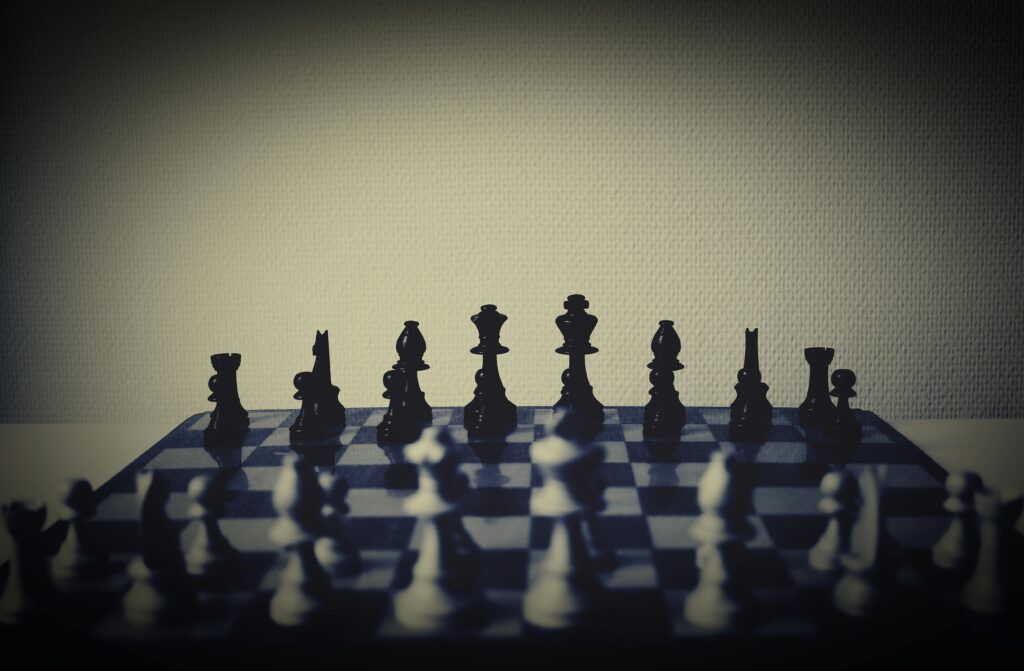
Action Tip for Coaches:
Start every class with a quick ice-breaker. Compliment effort more than skill. Make sure every student speaks at least once. These tiny touches build big confidence.
Blending Tech with Heart
The academy uses smart chess platforms for puzzles and tournaments. But what sets it apart is how human the experience feels.
Kids aren’t just logging in to stare at pieces—they’re greeted by name, encouraged by teachers, and cheered by classmates. That balance of tech and heart creates unforgettable learning.
Action Tip for Other Platforms:
Don’t hide behind software. Train coaches to bring warmth and energy into every call. Use emojis, praise words, and voice tone to bring joy to the screen.
Real-World Milestones
At Global School of Chess, growth isn’t vague. Kids earn levels, unlock ranks, and track real progress. Parents receive performance reports that are easy to read—no jargon, just clear progress.
And every two weeks, there’s a mini tournament to test the new skills in a real match setting.
Action Tip for Schools:
Design your own badge or milestone system. Label each skill learned. Share a progress bar with parents. It helps both child and parent stay excited and involved.
Always Evolving
What worked last year might not work next year. That’s why Global School of Chess keeps evolving. New lessons are added. Coaches update their methods. Feedback from students and parents is used to refine the system.
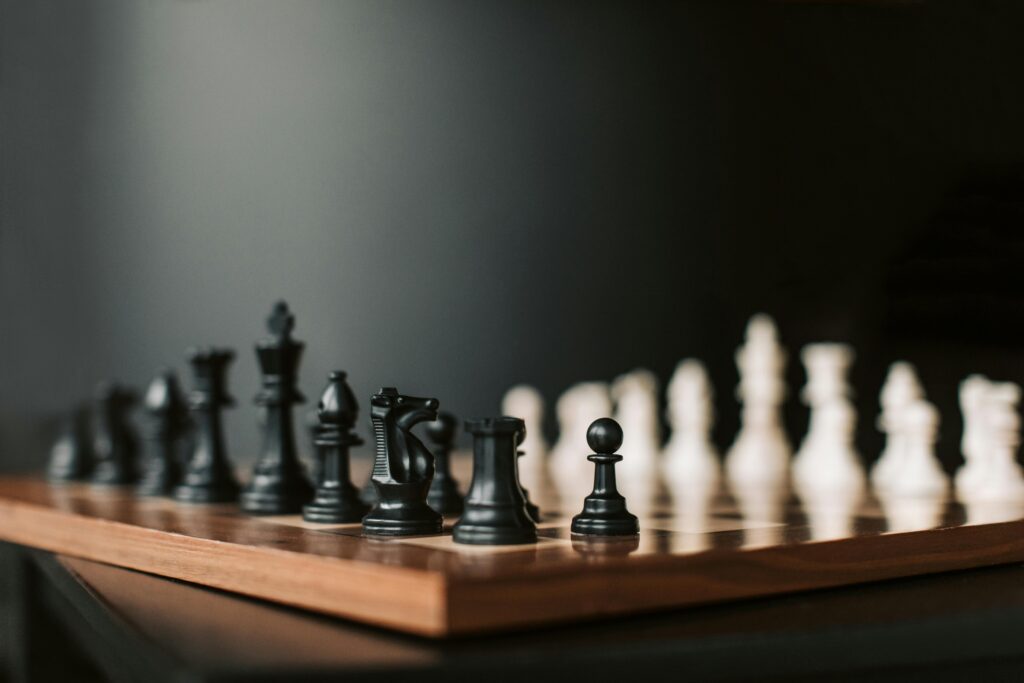
It’s a living school—one that grows as its students grow.
Action Tip for Other Educators:
Send a short monthly survey to your students and parents. Ask: “What’s working? What’s not? What should we try next?” Use this to fuel your next step forward.
Complete Ranking List for All Chess Coaching Academies in the United Kingdom
Wrapping It Up
Choosing the right chess academy isn’t just about chess.
It’s about choosing how your child learns to think, how they handle challenges, and how they grow into a confident, calm, and focused person. In a place like Shawlands, where families deeply value education and character, this decision matters a lot.

